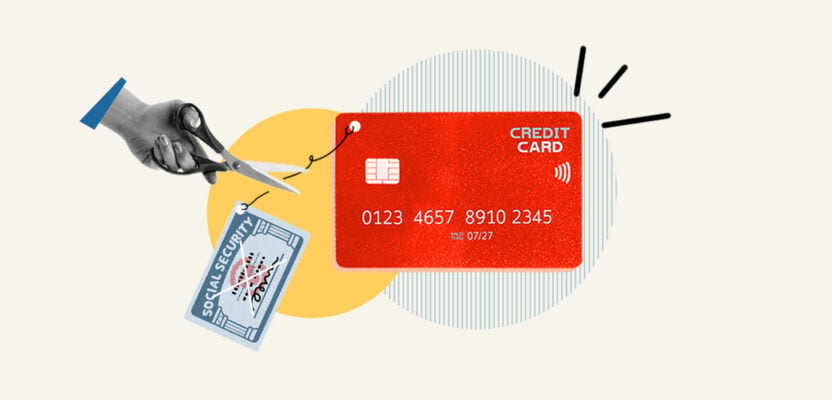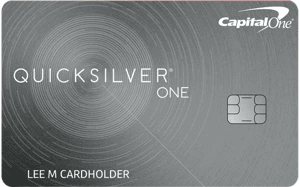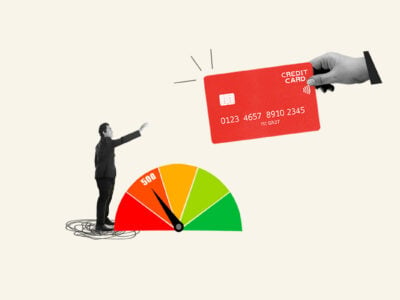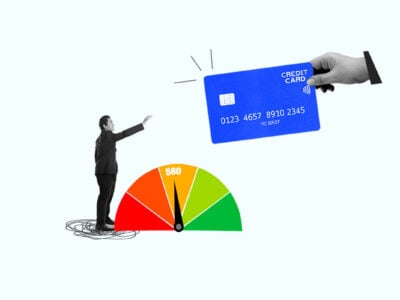Credit Cards without SSN Requirements
| Credit Card | Best For | Credit Score | Annual Fee | Welcome Bonus |
|---|---|---|---|---|
| Bad Credit | 300–669 | $0 | ||
| No Credit | 300–669 | $0 | ||
| Fair Credit | 580–739 | $39 | ||
| Rewards | 670–850 | $0 | 25,000 points | |
| Students | 580–739 | $0 |
Table of Contents
Credit cards are an important financial tool that can help you navigate modern life in the US more easily. However, if you’re an international student, a new immigrant, or an otherwise noncitizen, you probably don’t have a Social Security number (SSN), which can be a barrier to getting a credit card.
Thankfully, there are ways for people without an SSN to get credit cards. We’ll introduce the best credit cards without SSN requirements in 2022 and walk you through how to secure one of those cards as smoothly as possible.
Best credit cards without SSN requirements
Here are the best credit cards you can get without a Social Security number.
Best credit card without SSN for bad credit
Capital One® Platinum Secured Credit Card
Rating Breakdown
Fees
5.0The card boasts no annual fee, no foreign transaction fees, and standard fees for functions like cash advances.
APR
2.6The card has a relatively high purchase APR, making it expensive to carry a balance on.
Rewards
1.0Unfortunately, there are no cashback rewards on the Capital One® Platinum Secured.
Credit Reporting
5.0Capital One reports to the three major credit bureaus, making this card a good option for building credit.
Security Deposit
4.6This card has one of the best security deposit offers available, as you actually can put less money down then you get as a credit limit.
Other
We manually adjusted the card’s rating for factors like free credit scores and a fully refundable security deposit.
|
Annual
Fee
$0 |
Credit
Score
300–669 |
|
Deposit
$49–$200 |
Purchase
APR
26.49% (variable) |
Why It's Great
The Capital One Platinum Secured credit card is a great option for borrowers with poor credit and no Social Security number. Not only are you likely to be approved even with a bad credit score or no borrowing history, the card also offers services to help you build up your credit.
For example, the Capital One Platinum Secured card gives you:
- Credit reporting to the major credit bureaus
- Credit-monitoring services (CreditWise)
- A virtual credit assistant (Eno)
- Flexible due dates
Along with its credit-building features, the Capital One Platinum Secured has no annual fee or foreign transaction fees.
Keep in mind that the Capital one Platinum Secured is a secured credit card, meaning it requires a security deposit. This is common among credit cards for bad credit and no credit. However, most secured cards use the amount paid as the deposit to determine your initial credit limit. The Capital One Platinum Secured stands out, as you can pay as little as $49 for your security deposit and still get an initial credit limit of $200–$1,000.
Pros & Cons
Pros
- No annual fee
- No foreign transaction fees
- Refundable security deposit
- Flexible credit limit
- High approval odds
Cons
- Security deposit required
- Must have a bank account
- No bonus offers or rewards program
- High APR
Best credit card without SSN for no credit
Petal 2 "Cash Back, No Fees" Visa®
Rating Breakdown
Fees
4.7Because the Petal 2 Visa® stays true to its “no fees” name, it scores very highly in this category.
APR
2.2The Petal 2 Visa® has a wide range of interest rates, and less creditworthy borrowers could be hit with high APR.
Rewards
2.5This card has a fairly complicated rewards program, although it’s still one that’s worth having.
Credit Reporting
5.0Petal cards report to all three of the major credit bureaus, so the Petal 2 Visa® ticks all the boxes for building credit.
Credit Limit
5.0The Petal 2 Visa® gives you a credit line of up to $10,000, which is very generous.
Other
We gave the Petal 2 Visa® extra credit for its accessibility, since it accepts applicants with no credit score and applicants without a Social Security number.
|
Annual
Fee
$0 |
Credit
Score
300–669 |
|
Purchase
APR
15.99%–29.99% (variable) |
Rewards
-
All Purchases
1%–1.5% cash back on all eligible purchases (your rate increases to 1.25% after 6 on-time payments, 1.5% after 12 on-time payments)
Why It's Great
The Petal® 2 is an impressive starter credit card for people with no credit and no Social Security number.
Not only does it offer high approval odds and credit-building potential, but it has:
- No annual fee
- No foreign transaction fees
- No late fees
- A cashback rewards program
Finding a card when you don’t have a credit score is hard enough. But finding one without fees, a required security deposit, and that offers cashback rewards? That’s almost impossible.
One thing to note is that the Petal® 2 is one of two Petal® credit cards. You go through a general pre-qualification process to see which card (if any) you’re eligible for. If you’re only eligible for the Petal® 1 credit card, be aware that it has an annual fee, unlike the Petal® 2.
Pros & Cons
Pros
- No annual fee
- No foreign transaction fees
- No late payment fees
- 1%–1.5% rewards rate
- Available to people with no credit score
Cons
- Potentially high APR
- No introductory APR
- No balance transfers or cash advances
Best credit card without SSN for fair credit
Capital One® QuicksilverOne®
|
Annual
Fee
$39 |
Credit
Score
580–739 |
|
Purchase
APR
28.49% (variable) |
Rewards
-
Capital One Travel
5% cash back on hotels and rental cars booked through Capital One Travel
-
Everything Else
1.5% cash back on all other eligible purchases
Why It's Great
Once again, we have a card with no foreign transaction fees available to borrowers without a Social Security number. This one, however, requires at least fair credit (a score of 580 or above) to qualify and an annual fee of $39.
If you can score the Capital One QuicksilverOne credit card, though, you’ll enjoy generous rewards and signature Capital One benefits. It offers:
- 1.5% cash back on every purchase
- Comparatively low balance transfer and cash advance fees
- Capital One Travel benefits
- Virtual card numbers
- Credit tracking with CreditWise
The credit tracking, credit reporting to the major bureaus, and credit support service (Eno) offered by Capital One are important features if you’re someone looking to improve your credit score.
Furthermore, the rewards program is uncomplicated, offering a flat rewards rate without caps, limitations, or expiration dates.
Pros & Cons
Pros
- No foreign transaction fees
- 1.5% rewards rate
- Free credit monitoring services
- Low cash advance and balance transfer fees
Cons
- $39 annual fee
- High APR
- Need at least fair credit to qualify
- No intro offer or welcome bonus
Best rewards credit card without SSN
|
Annual
Fee
$0 |
Credit
Score
670–850 |
|
Purchase
APR
16.99%–26.99% (variable) |
0% APR
Period
18 Months |
Rewards
-
Welcome Bonus
25,000 points after you make at least $1,000 in purchases within the first 90 days after account opening
-
All Purchases
1.5x points on all eligible purchases
Why It's Great
The first thing to know about Bank of America credit cards is that they don’t require a Social Security number to qualify. However, without an SSN, you need to apply at a bank location and provide two forms of ID.
What makes the Bank of America® Travel Rewards credit card so worthwhile is its no-fuss rewards program. You get 1.5% cash back on all purchases, without caps, category limits, or point expiration.
Additionally, it offers:
- 25,000 bonus points if you spend $1,000 within 3 months of opening your account
- 0% APR for first 15 months
- No annual fee
- No foreign transaction fees
Given the points system (which can be put directly toward travel expenses) and the fee-free foregin transactions, this card is especially great for frequent travelers. If you’re an international employee working in the US, the Bank of America® Travel Rewards card can be a great card to have on hand in the US and for your trips home.
Pros & Cons
Pros
- No annual fee
- No foreign transaction fees
- Unlimited 1.5% cash back
- Free credit scores
- Welcome bonus worth $250
- 0% introductory APR
Cons
- Potentially high regular APR
- High cash advance APR
- No special rewards categories
- Qualification may be based on income
Best credit card without SSN for students
Deserve® EDU Mastercard®
|
Annual
Fee
$0 |
Credit
Score
580–739 |
|
Purchase
APR
22.49% (variable) |
Rewards
-
All purchases
1% cash back on all eligible purchases
Why It's Great
The Deserve® EDU Mastercard® is a student credit card for borrowers without a Social Security number or borrowing history. It’s specifically aimed at international students, and offers:
- No annual fee
- No foreign transaction fees
- 1% cash back on all purchases
- Free Amazon Prime Student membership
- Mobile phone insurance
Additionally, this card has a relatively low APR, meaning interest charges won’t be as pricey as they can be on many credit cards for borrowers without SSNs. That makes this a good choice if you’re likely to carry a balance from month to month.
However, keep in mind that this card only reports to two of the three major credit bureaus. That makes this card less useful for credit-building.
Pros & Cons
Pros
- $0 annual fee
- No foreign transaction fees
- 1% cashback rewards
- Free Amazon Prime Student membership
Cons
- No balance transfers or cash advances
- No introductory APR offers
- Low cashback rewards
- Only available to current students
How we rate our credit cards
Getting a new credit card can be tough, especially when you're not in your native country. That's why we heavily weighted the following factors when determining the best credit cards without SSN requirements:
- Qualification requirements
- Fees
- Interest rates
- Benefits
- Rewards and bonuses
- Borrowing terms
These factors, among many others, are part of our 5-star credit card rating methodology for all card categories. Our star ratings are unbiased and independent of our affiliates and advertisers.
Can you get a credit card without an SSN?
Yes, you can get a credit card without a Social Security number (SSN). Some issuers will allow you to qualify for a credit card using an Individual Taxpayer Identification Number (ITIN) or even just a foreign form of ID, such as a passport.
How do you get a credit card without an SSN?
Getting a credit card when you have no SSN can be challenging, but it isn’t impossible. Just follow these four steps:
1. Get an individual taxpayer identification number (ITIN)
If you don’t have an SSN, you can still apply for a credit card by using your taxpayer identification number (ITIN). This is a tax processing number that’s issued by the Internal Revenue Service (IRS) to individuals that need to file tax returns but aren’t eligible for an SSN. 1
Not all credit card companies will accept an ITIN in lieu of an SSN as an alternative form of identification, but many major ones do, including American Express, Bank of America, and Capital One.
Use one of the following three methods to apply for your ITIN: 2
- Mail relevant documents (i.e. your W-7, tax return, and proof of foreign status) to the address listed on the IRS website.
- Apply in the US or abroad through a Certifying Acceptance Agent that’s authorized by the IRS.
- Apply at a local designated IRS Taxpayer Assistance Center.
After you’ve applied for your ITIN, all that’s left to do is sit back and wait for a confirmation letter from the IRS. You can expect to hear back from them within approximately 7 weeks if your application went through successfully. 2
How to get a credit card as an international student without an SSN
It can be difficult to apply for a credit card in the US as an international student. Fortunately, it’s not impossible. If you’re not eligible to obtain an SSN, you can still apply for an ITIN, no matter if you’re on an F1, J1, or M1 visa. You can then use it to apply for a credit card as we’ve mentioned.
If you’re struggling to get an ITIN, there are credit cards you can look into that accept other documentation, such as your visa, passport, or certain school documents.
How to get a business credit card without an SSN
You can get a business credit card with an Employer Identification Number (EIN) if you don’t have an SSN.
Similar to an ITIN, an EIN is issued by the IRS for tax purposes. To apply for an EIN for your business, you’ll likely need to get an ITIN (or SSN) first, especially if you’re applying online. 3
Having your EIN added to your credit card application as well as providing additional collateral can significantly increase your chances of getting approved for a business credit card.
2. Pick a bank that accepts an ITIN or alternative identification
You may have fewer options applying for a credit card with an ITIN or an alternative form of identification, such as your passport or a government-issued ID. However, by doing some research on different credit card companies’ policies, it’ll still be possible to find a card without SSN requirements that’s suitable for you.
Bear in mind that if you’re applying with your passport or secondary form of identification, credit card issuers might ask you to provide proof of income during the application process.
3. Review your credit
In addition to your identification information, your credit is another important requirement for applying for a credit card. The better your credit history and credit score are, the more credit card options you’ll have.
Even if you don’t have an SSN, you may still have a credit report, which you can get a free copy of every 12 months from AnnualCreditReport.com. If you spot any inaccurate information on it, make sure to dispute the item immediately so that it won’t drag down your credit score.
Bear in mind that credit scores typically won’t show up on your free credit reports. To check your credit score, you can try looking it the following three places:
- A credit monitoring service
- Your bank’s website
- FICO’s website or a credit bureau’s website (Experian, Equifax, and TransUnion)
If you think your credit card application may get denied because your credit report has an insufficient credit history or you have a bad credit score, then it may be worthwhile to spend some time building your credit beforehand.
Don’t worry that your lack of a credit card will prevent you—there are plenty of ways to build credit when you have none.
4. Apply for a credit card
Once you’ve prepared all the documents you need, picked out the credit card you want to get, and checked your credit, then you can go ahead and apply for your credit card.
You can apply however you want:
- In person
- Over the phone
- Through the card issuer’s website
Your credit score may take a small dip when you apply because most card issuers will check your credit report, which will trigger a hard inquiry that will take a few points off your credit score. This effect is relatively small and should diminish considerably within a few months.
If your credit card application is successful, congratulations! All you have to do is wait until you receive your new card in the mail and follow your issuer’s instructions for how to activate your credit card. Make sure to use it responsibly so that you can build your US credit history and enjoy the benefits of having good credit.
Can I transfer my foreign credit history to my US credit report?
No, you can’t transfer your foreign credit history to your US credit report. That’s because every country has its own laws that regulate credit reporting. Additionally, the technologies used in different countries to manage consumers’ credit histories are also different and would be a barrier to transferring information.4
You might qualify for an AmEx credit card if you have a non-US credit history
American Express works with Nova Credit, which can check your credit history from certain countries (Canada, the UK, Mexico, Australia, India, Brazil, the Dominican Republic, Nigeria, and Kenya) to see if you qualify. If you’re new to credit in the US but you have a credit file in another country, American Express might be a good option.
What if I can’t get a credit card without an SSN?
If all of the methods above fail, you have two remaining options:
1. Get a prepaid card
If you’re struggling to get a credit card without an SSN, a prepaid card might be a good alternative.
While a prepaid card (also known as a prepaid debit card or a stored-value card) won’t build your credit history, it will offer many of the same conveniences as a regular credit card.
Additionally, you can buy a prepaid card without undergoing a credit check and spend however much money you load on that card. However, keep in mind that many prepaid cards charge fairly high fees. 5
2. Become an authorized user on someone else’s card
Becoming an authorized user on a credit card means that you’ve been added to that card as a secondary user. You’ll receive your own credit card and have access to the same line of credit as the primary cardholder.
More importantly, their credit history will be added to your own credit report, whether for better or for worse. This means that being an authorized user affects your credit score, which makes this a great method if you’re trying to build credit in the US—as long as the primary cardholder uses their card responsibly.
After being an authorized user boosts your score, you can try again to qualify for a card of your own.
Takeaway: You can apply for a credit card with an alternative identification, such as an ITIN.
- Many major credit card companies will accept an ITIN in lieu of an SSN.
- You can use an EIN to get a business credit card if you don’t have an SSN, but you’ll probably need to get an ITIN first if you’re applying online.
- Credit cards such as Deserve EDU Mastercard, Bank of America student cards, and Oportun Visa Credit Cards are good options for international students without an SSN.
- Make sure to check if your credit is in good standing before applying for a card. Dispute any errors on your credit report and work on building your credit if needed.
- If you still struggle to get a credit card without an SSN, a prepaid card may be a good last resort that can still give you the convenience of making purchases with a small plastic card instead of cash.












